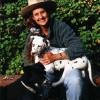Live Recording microphones
bit torrent
Looking for a show
Cassette to Digital Transfer, Can someone help me?
I have some original 1st gen cassettes I want transferred to digital files. Can someone do this for me?
Primo Williams
Message me or email me.
primo@willcopdx.com
Primo
What type digital files are you interested in, what resolution (word length and sample rate) are you looking to have files made ? I could make most formats for you, from MP3 to 24 bit/ 192 KHz or if you have an outboard DAC I can create up to 2x DSD which is 1 bit/5.6 MHz .
equipment recommendations
Hi there
I am looking for recommendations for a low cost quality recording set up. will mostly be recording a community concert band. would like to be able to use micro SD cards.
Affordable Recording Setup Recommendation
Hi there!
For a low-cost, quality setup to record a community concert band, I’d recommend looking into the Zoom H4n Pro or Tascam DR-40X portable recorders. Both offer excellent sound quality, built-in stereo mics, and support for micro SD cards. They’re compact, easy to use, and great for live recordings. Pair it with a good tripod or mic stand to position it optimally in the recording space.
Affordable Recording Setup Recommendation
thank you so much for the recommendations. I think they will work great for what I am looking for.






